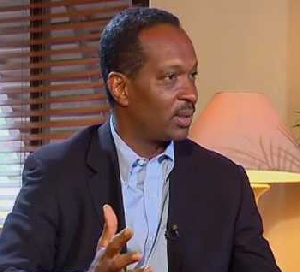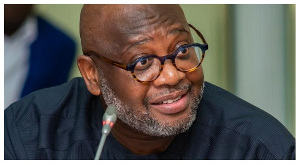…says tariff increase imperative
The Volta River Authority (VRA) says its proposed tariff increase, if granted by the Public Utilities Regulatory Commission (PURC), will put it in good stead to issue US$500million of corporate bonds on the international capital market to raise funds for infrastructure projects.
The electricity producer hopes to raise the amount to finance four new projects that will generate about 700 megawatts of electricity within three to four years.
“We don’t think we have any choice but to go out to the international market to borrow that money. We are also hoping that the tariff increase will ensure that the Authority can borrow that money and pay back,” Kweku Andoh Awotwi, Chief Executive Officer of the VRA, said.
Ghana’s electricity demand currently stands at about 1,800 megawatts per day. The Authority, which has a total installed capacity of 2,100 megawatts, currently generates about 1,600 megawatts of electricity every day. This is augmented by 400 megawatts of combined generation from Bui, CENIT, and Sunon Asogli power plants.
The electricity generator faced huge financial challenges at the height of the load-shedding programme as it had to import expensive crude oil in larger volumes to generate thermal power. It is at present unable to fully recover its costs as its tariff has remained unchanged for about two years.
“From the financial point of view, we are not out of the woods yet. We put in an application for 128 percent increase [in tariff]. At the height of the load-shedding we were procuring crude oil once every 14 days -- US$15million every 14 days -- and it was a challenge because government had to support us.
“Now it’s once every 30 days and a bit easier to plan and move forward. Hopefully, before the end of the year, that will also get a bit better. We have solved the availability problem for now, but the cost question is still with us,” Mr. Awotwi said.
While acknowledging that the PURC and other civil society groups are right to carp about the inefficiencies in the Authority’s operations, Mr. Awotwi said the VRA has adopted appropriate measures to mitigate any inherent inefficiencies.
“I think the PURC and others have a good point about our inefficiency, and when you see our numbers our primary objective is to minimise those inefficiencies so people will get value for money.
“But there is an even more important reason why the tariff must change. In the period that we didn’t have money, it actually slowed down a lot of our current projects because we didn’t have the cash. We are building a 200 megawatt project in the Kpone area. A few months ago we stopped it because we didn’t have the money. So the project that was supposed to be completed by 2014 will now be completed around January of 2015. These are the effects of slowing down on passing tariffs. It’s not just about affordable electricity; it’s about having enough electricity.”
Mr. Awotwi said a minimum tariff increase of about 70-90 percent, with regular supply of gas, will help the company cover its cost of operations and be profitable.
Annual electricity demand and consumption is rising at about 10 percent per annum, and the Ghana Grid Company Limited (GRIDCo) estimates that the country needs 340 megawatts of reserve power capacity for contingencies.
Mr. Awotwi has previously said the country requires US$200million of investment to bring on-stream 200 megawatts of new capacity each year.
Business News of Tuesday, 27 August 2013
Source: B&FT

















